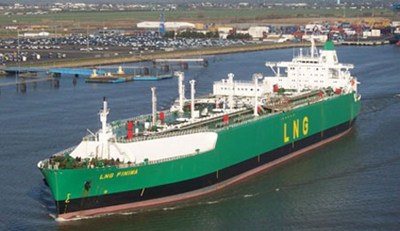
Sam Ikeotuonye
Lagos – Export of liquefied natural gas, LNG, from Nigeria will remain strong in the third quarter of this year, July to September, the Society of Energy Editors, SEE, has projected.
The society made the projection in its recently released Third Quarter 2024 Outlook for Nigeria Energy Sector, which also indicated that gas production in the country will increase during the quarter as new projects come on stream.
Nigeria, through the Nigeria LNG Limited, NLNG, currently has a total production capacity of 22 million tons per annum, Mmtpa, of the chilled gas, which it supplies the international market, in addition to 5 Mtpa of natural gas liquids, NGLs, both being produced from the NLNG’s six-train plant complex on Bonny Island, Rivers State.
The SEE also projected in the Third Quarter Outlook that despite the increased gas production and LNG exports expected in the third quarter of the year, infrastructure constraints, lack of investments and domestic supply shortfalls will persist in the gas sector during the period.
“Gas production to increase as new projects come online. LNG exports to remain strong, with Nigeria maintaining its position as a key global supplier,” the Oulook indicated, adding: “Gas infrastructure constraints, lack of investments and domestic supply shortfalls to persist.”
In the power sector, the Outlook showed that power generation would increase as new plants come on stream while transmission and distribution infrastructure upgrades were to continue.
It listed funding shortfalls due to lack of investment and grid stability issues as major challenges the power sector would face in the quarter.
Looking at labour relations in the energy industry in the third quarter of the year, the Society of Energy Editors’ Outlook predicted “potential labour unrest in the downstream and upstream petroleum sub-sectors in solidarity with organised labour regarding cost-of-living crises.”
“Electricity sector workers may protest over unpaid wages and benefits. Workers (in the power sector) are also poised to show solidarity with organised labour over cost-of-living crises,” the Outlook further indicated.



